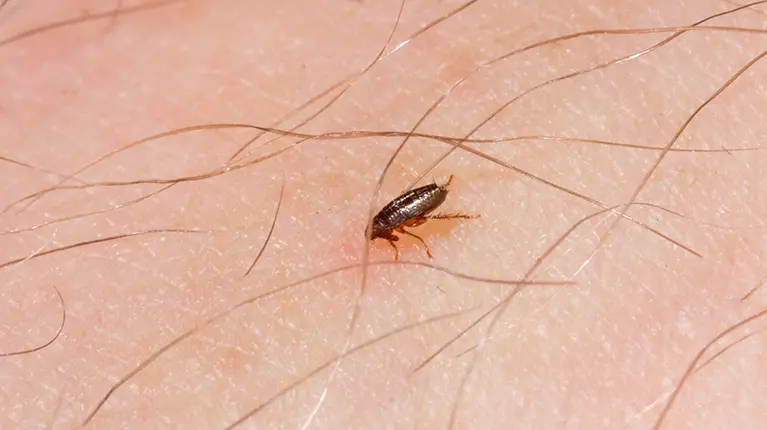Fleas

Flea is the common name given to the wingless insects of the order Siphonaptera. Fleas feed on the blood of mammals and birds and can transmit serious diseases such as typhus or bubonic plague.
Usually, affect more pets. In addition to annoying by the bites, they transmit worms, parasites and can induce allergic processes. The female flea lays its eggs (white 0.5mm long) on the animal and, as they do not settle, they fall into the environment where they only depend on temperature and humidity to hatch into larvae, within a period of up to 10 days. These remain in carpets, blankets and floor cracks, feed on organic debris and adult flea droppings. In 5 to 11 days they form a cocoon where the pupa form occurs.
At 27ºC and 80% ambient humidity, they can become adult fleas in just 5 days. For this reason, rapid disinfestation is essential for its control.
Contact us today for a pest control plan.